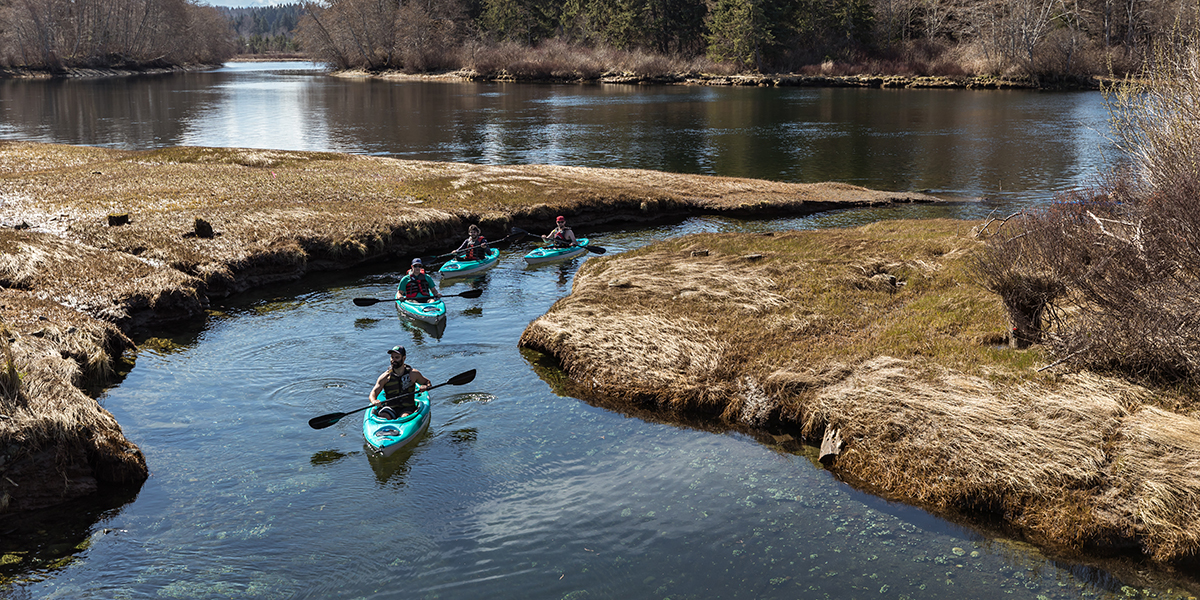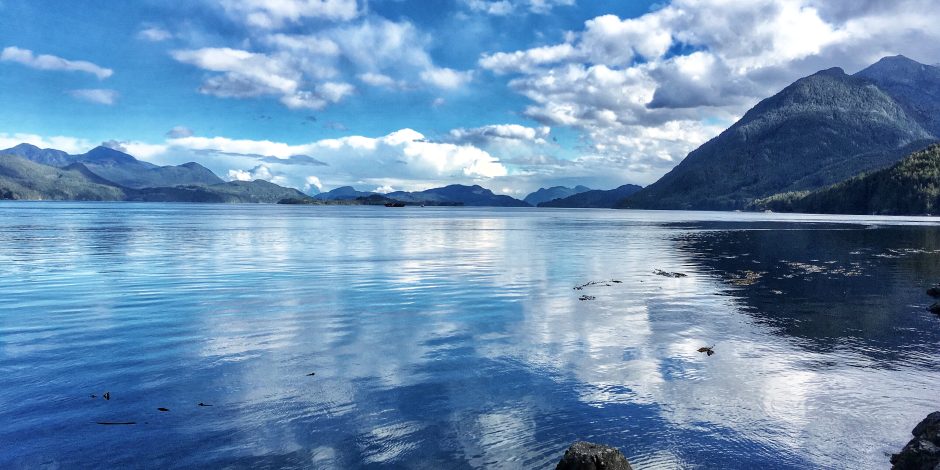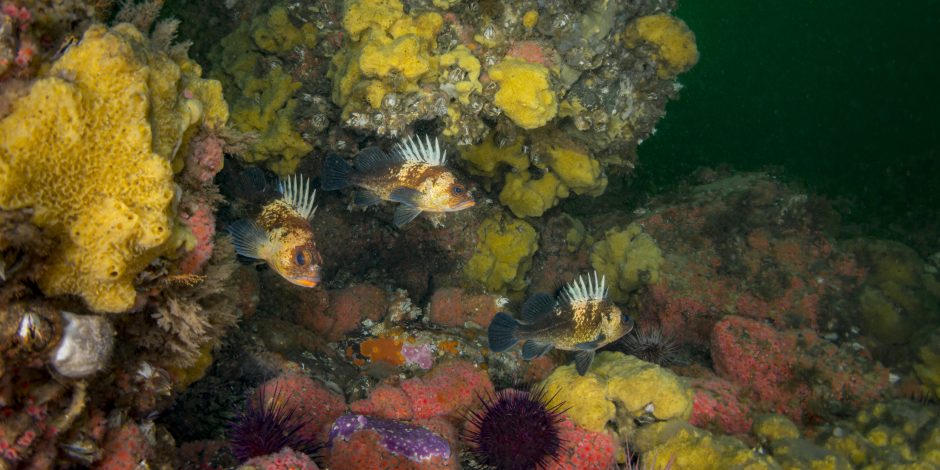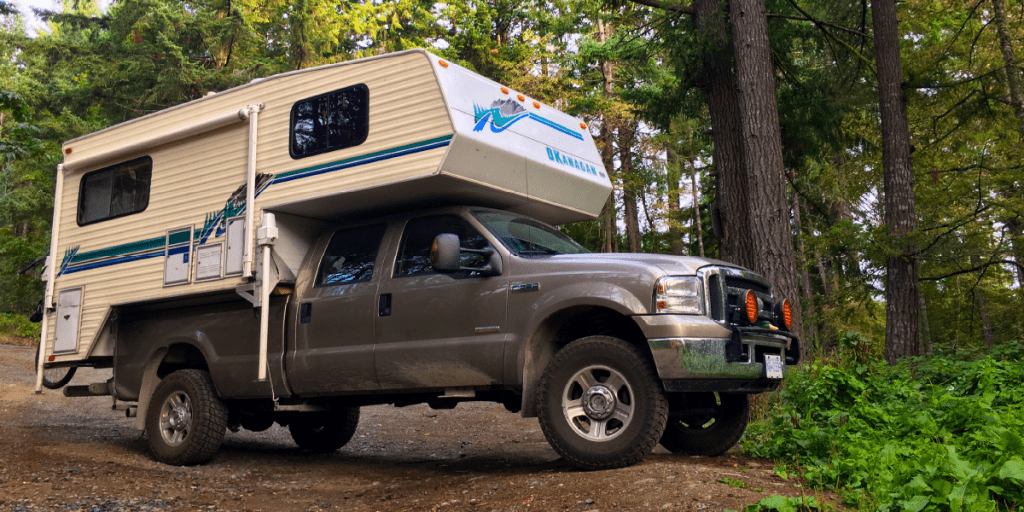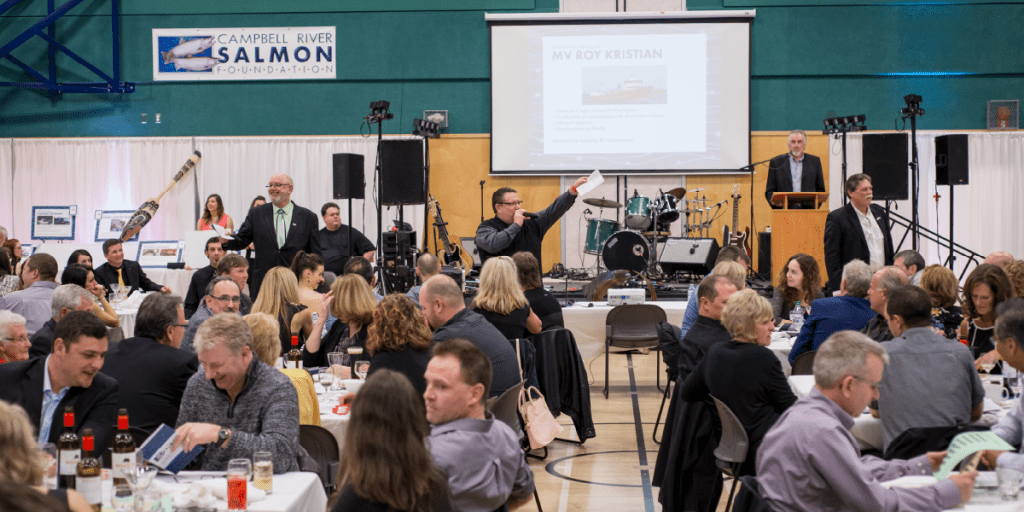We are standing on the Baikie Island Trail, about one kilometre down river from the Haig-Brown House where world-renowned author and angler Roderick Haig-Brown first wrote about the beauty and bounty of the Campbell River. The nearby bushes rustle with honking and flapping. We hear sounds, but we see nothing. My guide on the trail is Cory Cliffe, an Indigenous man of the Wei Wai Kum Nation, one of the four tribes of the Laichwiltach people. “Geese,” Cory observes, with a rueful smile. “They shouldn’t be here. We’ll have to get on them.” As the Urban Watershed Restoration Coordinator for the Greenways Land Trust, Cory knows this river.
GUARDIAN: A PERSON WHO PROTECTS OR DEFENDS SOMETHING
“I did a project with the Mid-Island Guardians of the Estuary,” explains Cory. “We focused on Canada geese and their impact on intertidal areas. One of the highest protein plants in the area is carrot grass or sedges. The geese trim it down and mow it out. The main responsibility of sedges is to hold the stream banks together, so once we start to lose the sedges, it affects other vegetation [and] we get more invasive species coming in.” Coordinating the removal of invasive species, and re-planting sedges to restore habitat for salmon smolts is part of Cory’s current job, but his dream is bigger.
As a Guardian, Cory’s work is underpinned by the ancestral responsibility to take care of the lands, waters, wildlife, and food sources of future generations. In fact, the stated principles of the North Island’s Ha-ma-yas Stewardship Network broaden the traditional translation of Ha-ma-yas—from “take care of the place we go to gather food” to “protecting the sources of physical and cultural sustenance for future generations.”
These principles inspire Cory. He’s done many jobs from training restaurant staff to building scaffolding, but restoration of the living world has become a calling. Cory says, “the stars aligned in just the right way, with just the right people moving in the right direction.” So, at the beginning of Covid, when everybody suddenly had time to think about the future, Cory enlisted a board of directors composed of like-minded supporters with a variety of complementary skills. Together they launched the 7 Generation Stewards Society (7GSS). Because there seem to be so many possibilities for needed action, they want 7GSS to be the central node within a network of organizations, companies, and community leaders. “We have a pretty big umbrella to operate under… We’ve seen there’s a bit of a void in what [other organizations] can accomplish… and because we have such a reach, we are able to expand on some of the ideas that their mandate doesn’t allow.”
STEWARD: A PERSON WHOSE RESPONSIBILITY IT IS TO TAKE CARE OF SOMETHING
One idea for action came from a community meeting about food security. The Homeless Coalition, the local Food Bank, the Hama?Elas Community Kitchen, Laichwiltach Family Life Society, and Grassroots Kind Hearts all want to provide better food to a diverse range of people in need—homeless people, youth, low-income families, and elders on fixed incomes. Garden plots expanding into an urban farm could provide fresh food as well as opportunities for satisfying work. Cory’s fiancée, Abby Wrigley, is even researching solar power and stream water as innovative supports to food production.
The 7GSS now has a mandate broad enough to develop and manage that kind of multi-purpose, multi-need service. Private industry also has a role to play, Cory acknowledges. Interfor and Western Forest Products contributed more than 14,000 seedlings ready for planting when asked for only 2,000 tree seedlings. The Port Hardy School District #85 had identified areas that had been overused and were ready for planting. Cory says, “We’ve been able to use those trees for youth engagement, getting the youth out into the green spaces.” School districts #71 in Comox and #72 in Campbell River quickly joined in so that almost all the 14,000 trees were planted within a month. Cory sees the importance of engaging young people. “By getting [youth] to physically put that living thing into the ground and watch it grow, [they realize] it’s no longer just a tree, just a forest, just a stream—it’s something that is connected to them in a spiritual way.”
Other opportunities for engaging youth are important to Cory. “When I was 14, I was a little gangster,” he claims. “By 15, I had gone down a dangerous path… Right now, it’s cool to be Native, but I worry about these kids [and] how to get them to be a cultural person…. to divert them from a dangerous path before they even have a chance to see it. But they don’t always connect the right decision to anything fun.” So, 7GSS is developing a five-week, five-module program for the Campbell River School District in which the first module of the Grade 9 program explores culture. This module includes fun things like dancing and making items from cedar bark. The next module is a little more serious, exploring the topic of safety; going well beyond trips, slips and falls, to include the RCMP and others talking about addictions. Cory acknowledges the challenge of “how to connect going out in the bush [with] having fun, so [youth] start to connect weedwhacking or invasive species removal or harvesting cedar with the term ‘stewardship’ [and] it becomes not just a responsibility, but a part of their life.”
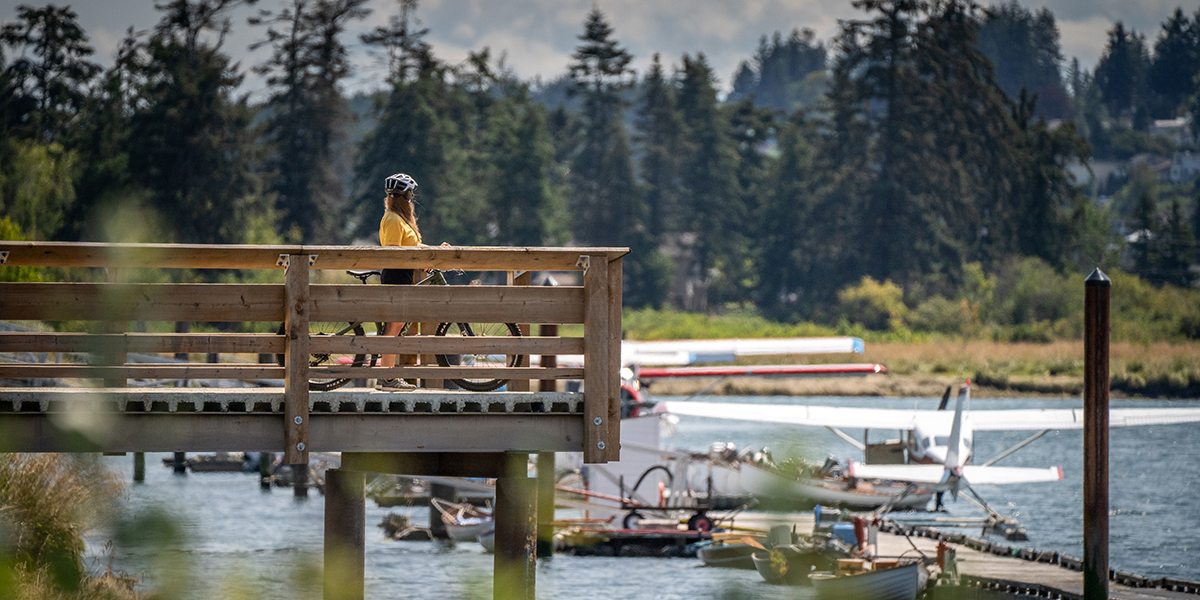
WATCHKEEPER: A PERSON WHO KEEPS WATCH OR ACTS AS A LOOKOUT
Beyond influencing the thinking and decisions of young people, another goal for 7GSS is to develop a cadre of wellinformed and educated people who can skillfully represent First Nations interests at the highest levels of industry, as well as with regional, provincial, and national governments. These skilled communicators will need to comprehend and interpret technical field data and be able to negotiate with equal credibility at any negotiating table. Cory is keen. “We’re hoping to put on our first pilot program to create a team of highly trained experts, all on the same page. Imagine what we could achieve together!” As for politics, Cory is realistic. “Our work has quite a lot to do with politics. The idea is to get past that, to help people understand that it doesn’t matter if you’re mad at your cousin. We’re all family… [and] we need to work to the same ends.”
That work is not limited to people of Indigenous heritage. Cory recognizes that some 7GSS programs are taking inspiration from what Greenways Land Trust has already accomplished. In his current work with Greenways, Cory knows “The Greenways Board of Directors and Executive Director Cynthia Bendickson have been so incredibly valuable and supportive. They see the value in what we are doing [with 7GSS] and I foresee a partnership [between Greenways and the 7 Generation organization].” In addition, Greenways has “a small army of volunteers” which is a great start for getting involved. “Whether you are an environmental steward or a banker or whatever, there are things in your life you can change that will benefit the environment. Just because you aren’t getting your feet muddy or your hands dirty, doesn’t mean you’re not having an impact.” The ultimate objective of the new 7GSS, as Cory frames it, is “the restoration of this Coast.” Ambitious, yes! Achievable? Check back in seven generations.

